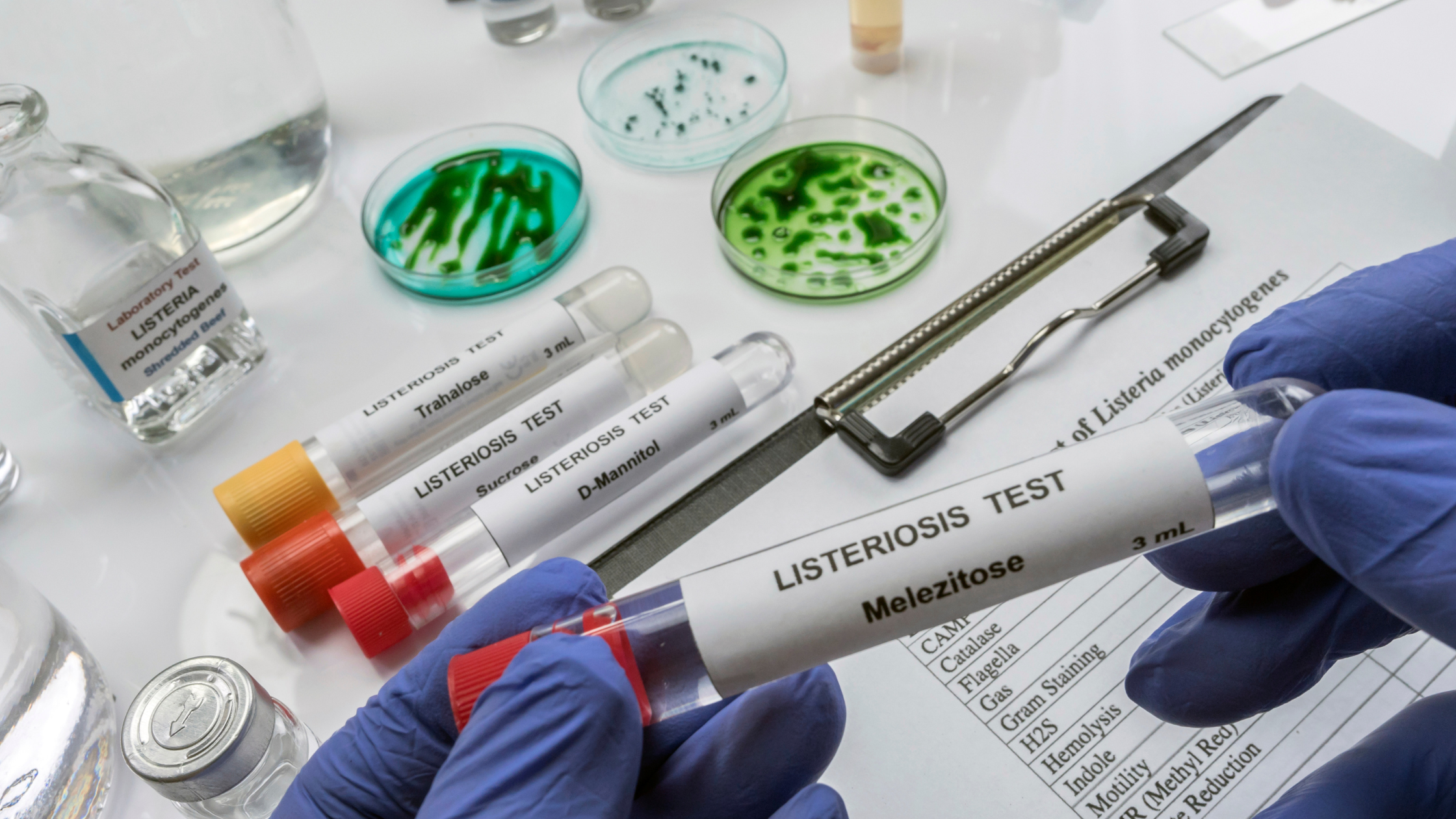
The Link Between Vitamin D and Immune Function
Table of Contents
-
- Introduction: Why Vitamin D Matters for Immune Health
- How Vitamin D Supports the Immune System
- The Impact of Vitamin D Deficiency on Immunity
- Best Food Sources of Vitamin D
- Sunlight Exposure and Vitamin D Production
- Should You Take a Vitamin D Supplement?
- Frequently Asked Questions
- Final Thoughts
- References
Introduction: Why Vitamin D Matters for Immune Health
Vitamin D is often referred to as the "sunshine vitamin" because the body produces it when exposed to sunlight. While it is well-known for its role in bone health and calcium absorption, research has also highlighted its crucial role in immune function.
Studies suggest that vitamin D plays a key role in modulating the immune response, helping the body fight infections and reducing the risk of autoimmune diseases (National Center for Biotechnology Information).
With vitamin D deficiency becoming increasingly common, understanding how it impacts immune health is essential for long-term wellness.
How Vitamin D Supports the Immune System
Vitamin D interacts with immune cells such as T-cells and macrophages, which help the body identify and eliminate harmful pathogens.
Regulating the Innate and Adaptive Immune Response
The immune system is divided into two main components:
- Innate immunity: The body's first line of defense against infections.
- Adaptive immunity: A more specialized response that creates long-term immunity to specific pathogens.
Vitamin D helps balance these responses, ensuring the immune system does not overreact while still effectively fighting infections (ScienceDirect).
Reducing Inflammation and Autoimmune Risks
Vitamin D helps regulate cytokine production, reducing excessive inflammation that may contribute to autoimmune diseases such as rheumatoid arthritis and multiple sclerosis.
The Impact of Vitamin D Deficiency on Immunity
Vitamin D deficiency has been linked to increased susceptibility to infections, weakened immune response, and a higher risk of chronic diseases. Studies indicate that individuals with low vitamin D levels may be more prone to respiratory infections, including influenza and pneumonia.
Vitamin D and Respiratory Health
Research suggests that adequate vitamin D levels help reduce the risk of upper respiratory tract infections (URTIs) by enhancing the body's ability to fight off bacteria and viruses.
In a meta-analysis of randomized controlled trials, vitamin D supplementation was found to significantly lower the risk of acute respiratory infections, particularly in individuals with low baseline vitamin D levels (The BMJ).
Vitamin D and Autoimmune Conditions
Studies have also linked vitamin D deficiency to a higher risk of autoimmune diseases, including:
- Multiple Sclerosis (MS): Low vitamin D levels have been correlated with an increased risk of developing MS (NCBI Study).
- Type 1 Diabetes: Vitamin D may play a role in immune regulation, reducing the likelihood of autoimmune conditions that attack insulin-producing cells.
- Rheumatoid Arthritis: Sufficient vitamin D intake has been associated with lower inflammation markers in individuals with arthritis.
Signs of Vitamin D Deficiency
Some common symptoms of low vitamin D levels include:
- Frequent colds and infections
- Fatigue and muscle weakness
- Bone pain or joint discomfort
- Depressed mood or seasonal affective disorder (SAD)
Since vitamin D deficiency can have wide-ranging effects on health, ensuring optimal levels is crucial for immune function and overall well-being.
Best Food Sources of Vitamin D
While the primary source of vitamin D is sunlight exposure, certain foods naturally contain high levels of this essential nutrient.
Top Animal-Based Sources
- Fatty Fish (Salmon, Mackerel, Sardines): These are among the richest natural sources of vitamin D.
- Egg Yolks: A great option for vegetarians who consume animal products.
- Beef Liver: Contains high levels of both vitamin D and iron.
- Cod Liver Oil: One of the most concentrated dietary sources of vitamin D.
Plant-Based Sources
- Mushrooms (Exposed to UV Light): Certain varieties, like maitake and shiitake, naturally produce vitamin D when exposed to sunlight.
- Fortified Foods: Many plant-based milk alternatives (soy, almond, oat) and cereals are fortified with vitamin D.
While diet can contribute to daily vitamin D intake, many individuals may require supplementation to maintain optimal levels, particularly in winter months.
Sunlight Exposure and Vitamin D Production
One of the most effective ways to maintain adequate vitamin D levels is through sunlight exposure. The skin produces vitamin D when exposed to ultraviolet B (UVB) rays from the sun.
How Much Sunlight Do You Need?
The amount of sunlight needed varies based on skin tone, location, and time of year. General recommendations suggest:
- Fair-skinned individuals: 10–30 minutes of midday sun exposure, several times per week.
- Darker-skinned individuals: Up to 60 minutes of daily sun exposure, as melanin reduces vitamin D synthesis.
- Winter months or high-latitude locations: Less UVB exposure results in lower vitamin D production.
Factors That Affect Vitamin D Synthesis
Several factors influence how much vitamin D your body produces:
- Sunscreen Use: SPF blocks UVB rays, reducing vitamin D production.
- Age: Older adults have a reduced ability to synthesize vitamin D.
- Geographical Location: Those living above 37° latitude receive less UVB exposure, especially in winter.
For individuals with limited sun exposure, vitamin D supplementation may be necessary to maintain optimal levels.
Should You Take a Vitamin D Supplement?
Vitamin D supplements are widely used to correct deficiencies and maintain immune health. They come in two forms:
Vitamin D2 vs. Vitamin D3: Which Is Better?
There are two main types of vitamin D found in supplements:
- Vitamin D2 (Ergocalciferol): Found in plant sources but less bioavailable.
- Vitamin D3 (Cholecalciferol): Derived from animal sources or vegan lichen and is more effective at raising blood levels.
Studies indicate that vitamin D3 is superior to vitamin D2 in maintaining long-term vitamin D status (NCBI Study).
Recommended Daily Intake
Vitamin D needs vary by age, lifestyle, and existing blood levels. General recommendations from the National Institutes of Health (NIH) suggest:
- Infants (0–12 months): 400 IU (10 mcg) per day
- Children (1–18 years): 600 IU (15 mcg) per day
- Adults (19–70 years): 600–800 IU (15–20 mcg) per day
- Older adults (71+ years): 800–1,000 IU (20–25 mcg) per day
- Individuals with deficiency: May require 5,000 IU or more daily under medical supervision.
Blood testing is the best way to determine whether supplementation is necessary. Levels between 30-50 ng/mL are considered optimal for immune support and overall health.
Frequently Asked Questions
Can vitamin D prevent colds and the flu?
While vitamin D does not cure illnesses, research suggests that maintaining optimal levels can help reduce the risk of respiratory infections and enhance the body's immune defense.
What’s the best time to take a vitamin D supplement?
Vitamin D is fat-soluble, meaning it’s best absorbed with a meal containing healthy fats. Taking it in the morning or afternoon may also help prevent sleep disturbances.
Is it possible to get too much vitamin D?
Yes. Excessive vitamin D intake can lead to toxicity, causing high calcium levels in the blood (hypercalcemia). This can result in kidney damage, nausea, and irregular heartbeat. The upper safe limit is 4,000 IU per day for most adults.
Does sunscreen block vitamin D production?
Yes. Sunscreen with SPF 30 or higher can reduce vitamin D production by 95-98%. However, short periods of direct sun exposure can help maintain adequate levels.
Can I get enough vitamin D from food alone?
It’s difficult to meet daily vitamin D needs through diet alone, as very few foods contain sufficient amounts. Sun exposure and supplementation are often necessary, particularly in winter months.
Final Thoughts
Vitamin D plays an essential role in immune function, respiratory health, and inflammation regulation. While the body can produce vitamin D through sunlight exposure, many factors—such as geographic location, skin tone, and sunscreen use—can impact synthesis.
For those who have limited access to sunlight, consuming vitamin D-rich foods and considering high-quality supplementation can help maintain optimal levels. Deficiency has been linked to higher infection risk, autoimmune conditions, and chronic fatigue, making it crucial to ensure adequate intake.
As always, the best way to determine your vitamin D needs is through a blood test. If you're concerned about deficiency, consult with a healthcare provider to find the right dosage and supplementation strategy for your unique needs.
References
- Vitamin D and Immune Function - National Center for Biotechnology Information
- Vitamin D Supplementation and Respiratory Infections - The BMJ
- The Role of Vitamin D in Immune Modulation - ScienceDirect
- Vitamin D and Autoimmune Disease Risk - National Center for Biotechnology Information
- Comparing Vitamin D2 vs. D3 for Bioavailability - NCBI
- Official Vitamin D Intake Guidelines - National Institutes of Health









